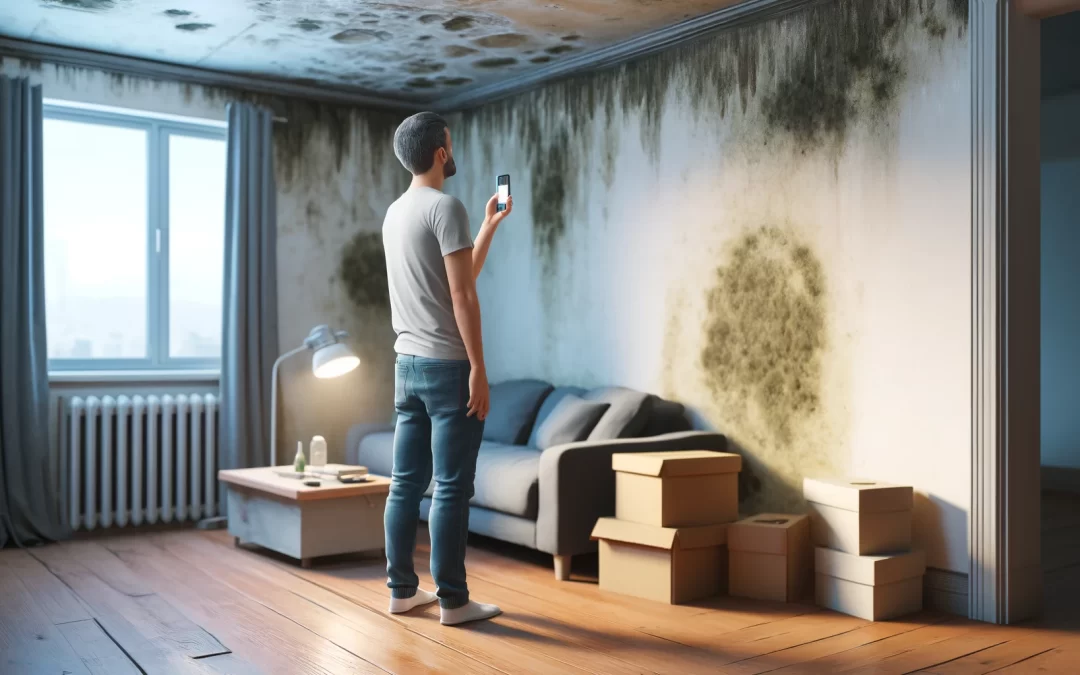As a tenant, discovering mold in your rental property can be alarming and concerning. Not only can mold cause health issues, but it can also indicate underlying habitability problems that your landlord is responsible for addressing.
In this blog, we will explore your legal rights and remedies when dealing with mold in your rental property, ensuring that you understand how to protect yourself and your living environment.
Understanding Habitability and Mold
Habitability is a fundamental aspect of rental properties, ensuring that they are safe and suitable for human habitation. When mold is present in a rental property, it can compromise habitability and pose health risks to tenants.
Mold thrives in damp and humid environments, often resulting from water leaks, inadequate ventilation, or poor maintenance. As a tenant, you have the right to live in a mold-free environment, and your landlord is responsible for addressing any mold issues promptly.
Legal Responsibilities of Landlords
Landlords have a legal obligation to maintain habitable living conditions in their rental properties, which includes addressing mold issues. If mold is present in your rental unit, your landlord is typically responsible for identifying the source of the mold, remedying the underlying cause, and removing the mold safely.
Failing to address mold issues can constitute a breach of the implied warranty of habitability, which gives tenants legal grounds to take action against their landlord.
Documenting Mold Issues
If you discover mold in your rental property, it’s crucial to document the issue thoroughly. Take photographs or videos of the mold growth, making sure to capture any visible damage or signs of water intrusion.
Additionally, keep records of any communication with your landlord regarding the mold problem, including repair requests and responses. This documentation will serve as valuable evidence if you need to pursue legal action against your landlord for failing to address the mold issue adequately.
Communicating with Your Landlord
Effective communication with your landlord is essential when addressing mold issues in your rental property. Notify your landlord of the mold problem in writing, providing details of the location and extent of the mold growth.
Request that they take immediate action to address the issue and remediate the mold. If your landlord fails to respond or takes insufficient action to resolve the mold problem, consider seeking legal assistance for habitability issues from a tenant rights attorney. They can help you understand your rights and options for recourse, ensuring that your landlord fulfills their legal obligations regarding habitability.
Legal Recourse for Mold Issues
If your landlord fails to address mold issues in your rental property, you may have legal recourse available to you. Depending on the severity of the mold problem and your state’s laws, you may be able to withhold rent until the issue is resolved, make necessary repairs yourself and deduct the cost from your rent, or terminate your lease agreement due to uninhabitable conditions.
A tenant rights attorney can help you navigate the legal process and ensure that your rights are protected throughout.
Seeking Remedies for Mold Exposure
Exposure to mold can have serious health consequences, especially for individuals with respiratory issues or compromised immune systems. If you or your family members experience adverse health effects due to mold exposure in your rental property, you may be entitled to compensation for medical expenses, lost wages, and pain and suffering.
A tenant rights attorney can help you pursue legal remedies against your landlord for failing to maintain a habitable living environment and protect your health.
Preventing Mold Growth
Preventing mold growth in your rental property is essential for maintaining habitability and protecting your health. Take proactive measures to reduce moisture levels in your home, such as using exhaust fans in bathrooms and kitchens, fixing leaks promptly, and ensuring adequate ventilation.
Regularly inspect your rental unit for signs of water damage or mold growth, and notify your landlord immediately if you discover any issues. By taking these preventive measures, you can help ensure that your rental property remains mold-free and habitable.
Protecting Your Rights as a Tenant
Dealing with mold in your rental property can be challenging, but it’s essential to understand your legal rights and remedies. If you discover mold in your rental unit, document the issue, communicate with your landlord, and seek legal advice if necessary.
Remember that you have the right to live in a safe and habitable environment, and your landlord is responsible for maintaining these conditions. By asserting your rights and taking appropriate action, you can protect yourself and your living environment from the harmful effects of mold exposure.

